
Historic U.S. Policies and CIA Influence Behind Foundational Black Americans’ Boycott of African Businesses
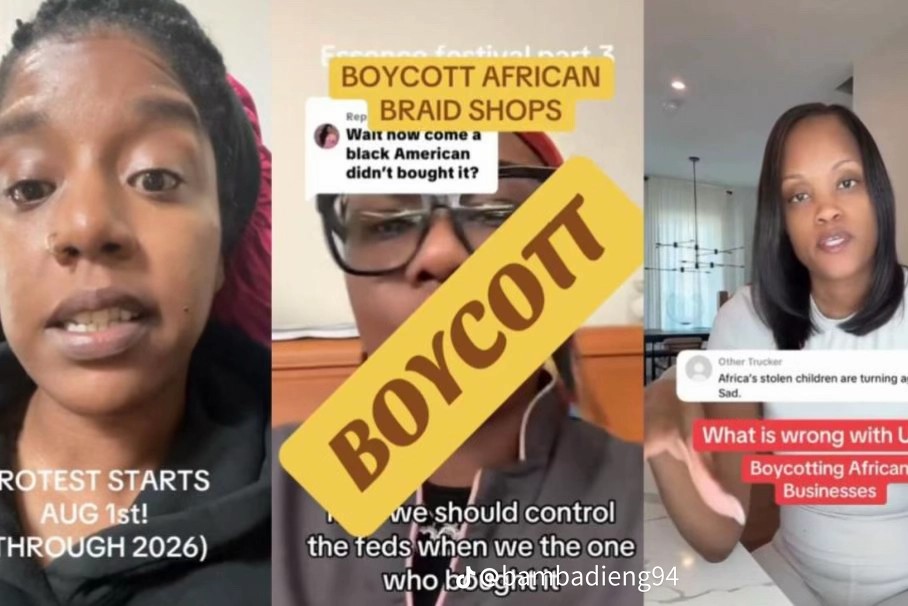
A growing number of Black Americans are calling for a boycott of African-owned businesses, specifically braiding shops, on the need for ideal customer service and “respect” within the Black diaspora in the United States.
While this boycott movement, growing in influence and reach with the power of social media, has a cultural superiority undertone to it, it was sparked by a series of short-video clips on TikTok from Shea’s Shelf (@shea_thecreator).
In early August, the boycott campaign evolved into a movement among Black Americans, urging support for Black American-owned businesses over those owned by African immigrants. These Black Americans identify as “Foundational Black Americans” and the “American Descendants of Slavery.”
Apparent as it would seem to a historian or a student of history, the hands that shook the jar and sow division within the black communities dated back to 1978, one that suggests a more profound, orchestrated influence by the U.S. Central Intelligence Agency (CIA).
This movement, gaining traction on platforms like TikTok, is portrayed not merely as community friction but as a manifestation of long-standing U.S. strategies to divide Black populations globally.
As the movement circulates in reach, West Africa Weekly’s Founder, and also a geopolitical commentator at the Hot Spot, David Hundeyin, drew an analysis using the 1978 National Security Council Memorandum (NSC-46), as authored by Zbigniew Brzezinski under President Jimmy Carter.
This confidential document, now publicly available, outlined a series of measures to inhibit unity between Black Americans and Africans, fearing that such collaboration could lead to collective action against U.S. policies, particularly regarding apartheid South Africa and later, Israeli policies in Palestine.
The memo proposed CIA-led operations to “cause division among Black African radical national group leaders” and to “impede durable ties between U.S. Black organisations and radical groups in African states,” aiming to perpetuate social stratification within the Black community.
Hundeyin, using implications of this salient historical context, further argued that the current boycott, while seemingly a response to perceived disrespect and economic competition, may be unwittingly or intentionally amplifying divisions that serve broader geopolitical interests.
He also highlights how such divisions could distract from larger struggles against systemic racism and economic disparity, both in the U.S. and Africa, where issues like artificial de-industrialisation and non-representative leadership persist.
As Africa continues to assert its sovereignty, exemplified by actions like South Africa’s case against Israel at the International Court of Justice (ICJ), and as Black American activists engage in global solidarity movements, the narrative of division versus unity only continues to fuel a vulnerable and dangerous battleground that could be exploited, as seen in the U.S. intelligence operations documented in NSC-46.
Hundeyin’s analysis brings in a different perspective to this intersection of past U.S. policies and present actions. One that calls for a nuanced understanding of Black diaspora relations, urging both communities to navigate these tensions with a critical eye towards unity and collective action, rather than succumbing to division that most likely would serve interests far removed from their own.
Read More:
- Gates, Pfizer, and the West’s Silent Stake in Controlling Africa’s Fertility
- Tinubu’s Nigeria: A Nation Held Hostage by Failure
About The Author
Mayowa Durosinmi
author
M. Durosinmi is a West Africa Weekly investigative reporter covering Politics, Human Rights, Health, and Security in West Africa and the Sahel Region
Mayowa Durosinmi
M. Durosinmi is a West Africa Weekly investigative reporter covering Politics, Human Rights, Health, and Security in West Africa and the Sahel Region
5 Comments
Leave a Reply Cancel reply
Related Articles
Trump’s Greenland Threat Forces Europe to Taste the Logic of Western Colonial Power
It rarely begins with soldiers. More often, it begins with a sentence,...
ByWest Africa WeeklyJanuary 21, 2026Tinubu Government Claims Intelligence Cooperation With the US, Yet New York Times Publishes Conflicting Story Following $9 Million US Lobbying Effort
When the New York Times published its investigation suggesting that claims from...
ByWest Africa WeeklyJanuary 19, 2026Mali’s Transition Leader Attends Swearing-In of Guinea’s President Mamadi Doumbouya
Mali’s President of the Transition, General Assimi Goïta, represented the country in...
ByWest Africa WeeklyJanuary 19, 2026Niger’s Security Forces Record Major Gains Against Armed Groups
Niger’s Defence and Security Forces have reported significant results following a week...
ByWest Africa WeeklyJanuary 19, 2026






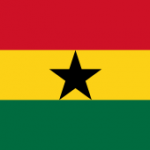

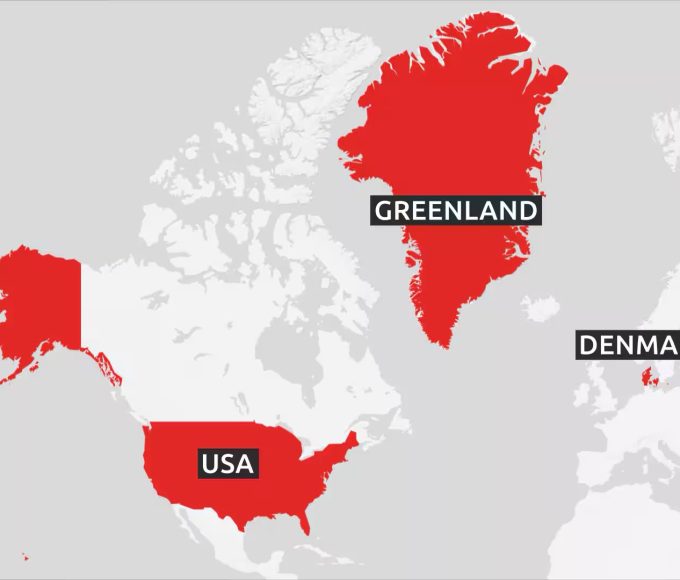
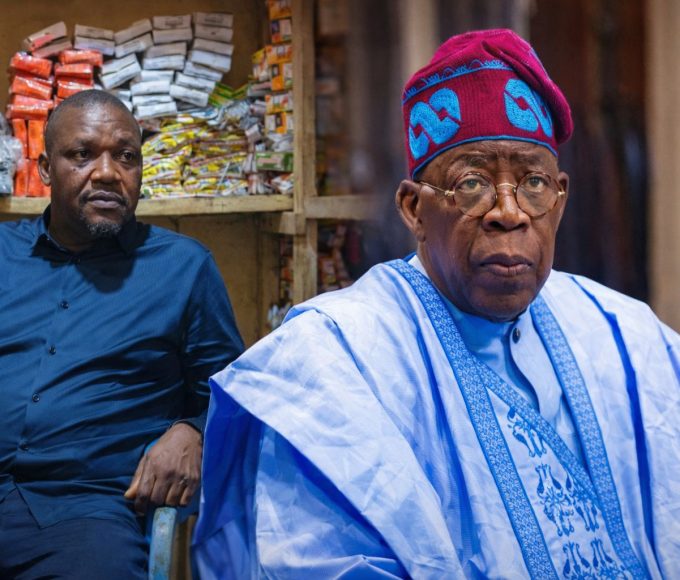

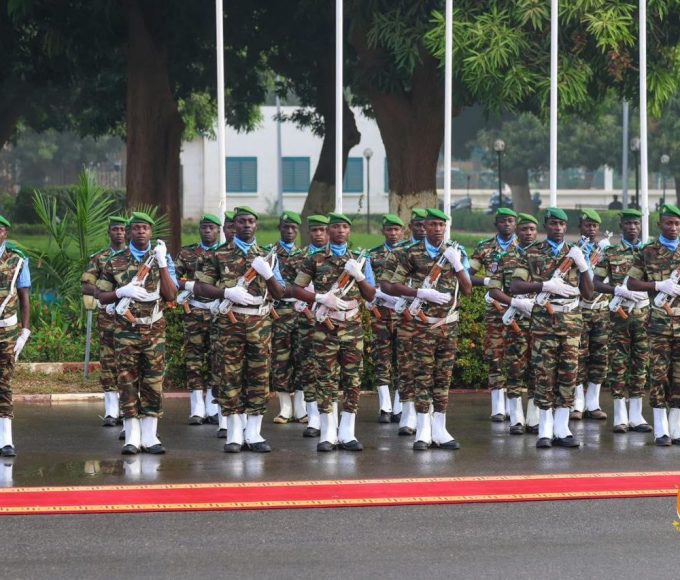
Stop your BS and backhanded insults of American Indian intelligence! You think we don’t know that sub Saharan Africa has gotten hundreds of fillings in aid from the US corporation?? Over a TRILLION from around the world! While we sit colonized and they owe us 10x as much for resource theft and illegal taxation while we’ve gotten ZERO!!! Do you think we don’t know Biden/ Harris didn’t just give another $55 BILLION during covid when they were murdering us and you want us to think they’re driving a nonexistent wedge between us and foreigners because we’re sick and tired of the lies and YOUR agency?! You aren’t even smart enough lie native Americans to just remain silent, take your welfare and move on you have to keep playing the link toes stooges! You’re gonna find out the hard way. USAID isn’t the only spigot being turned Off!!!
I’m wondering if we both read the same news article just seeing you take about American Indians. This has got nothing to do with American Indians or native Americans. If this is what you call American Indian intelligence, then I’m sorry we might have to change the meaning of intelligence. A lot of you have no idea what goes on in Africa especially with these so called foreign aids. For your information, cos I sense a lot of ignorance in your comment, the governed in Africa that do not side with a lot of the depraved have never asked for Aid in any form. It’s a blend of corruption on the part of some greedy politicians in Africa and the theft and wickedness of your evil Western leaders that ensures this evil union between us and you guys fly because unless you’d like to stay ignorant, what you guys eventually take from us and what you guys have been taking from us is priceless and it’s so much more than what your illusionary mind would ever be able to evaluate, fathom or ascertain. And mind you, you’ll be living in delusion if you actually think most of these so-called funds you guys paint as aid are not just smokescreens for sinister operations like regime changes and terrorism. Did your own government not uncover how these so-called USAID grants and stuffs have been used for terrorists operations and foreign policy interventions of other countries. You should read up about the Economic Hitman, and know how America has been an evil conglomerate/association of some of the worst type of humans to grace earth’s surface. You should do some digging into the affairs of CIA and educate yourself on how America operates as an entity. Even your own JFK was a victim. Please do yourself a favour and educate yourself and stop sounding like a bunch of ignorant fellows in public spaces. This is clearly an issue between foundational blacks and black migrants from Africa which clearly didn’t start today and may have been orchestrated by the usual suspects as is mostly the case like it was in the 70s where the CIA head or director at the time, specifically talked about how the unity of blacks wasn’t good for America and it’s policies. You should read about Ed Hoover. May his deceased useless soul keep finding no rest.
Who is this west African to write about Americans and what we are doing?
Humans just like you, unless way smarter than you because if you clearly read and your understanding still works, you’d see they were talking about issues between blacks, however, different factions and how CIA led operations have actually orchestrated something like this in the past. You better stick to what concerns and act like your name more often
Stop your BS and backhanded insuilts of American lndtign intlligencel Yolu think we don’t know
that Sub Saharan Africa has gotten hundreds of BILLIONS in aid from the US corporation?? Over a
TRILLION from around the world! While we sit colonized and they owe us 10x as much for
resource theft and illegal taxation while we’ve gotten ZEROl! Do you think we don’t know Biden/
Harris didn’t just give another $55 BILLION during covid when they were murdering us and you
want us to think they’ re driving a nonexistent wedge between us and foreigners because we’re
sick and tired of the lies and YOUR agency? You NOR native “Americans” aren’t even smart enough to
just remain silent take your welfare and move on you have to keep playing the lPnk toes stooges!
You’re gonna find out the hard way. USAID isn’t the only spigot being turned Off!l
Don’t delete comments.